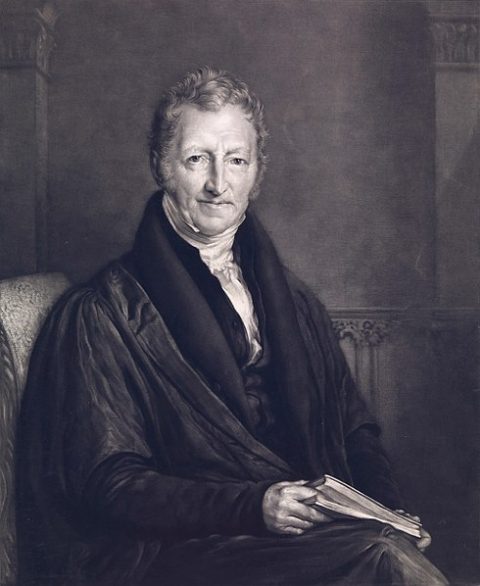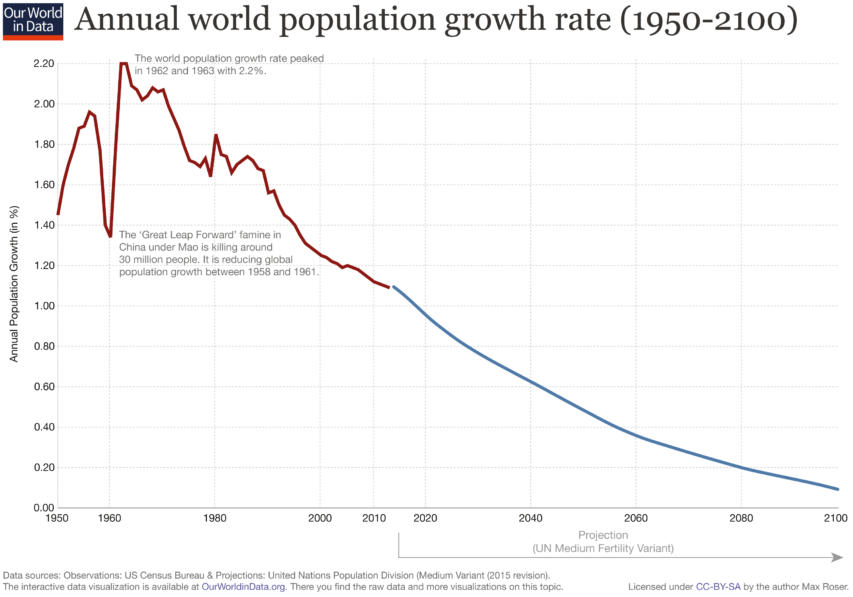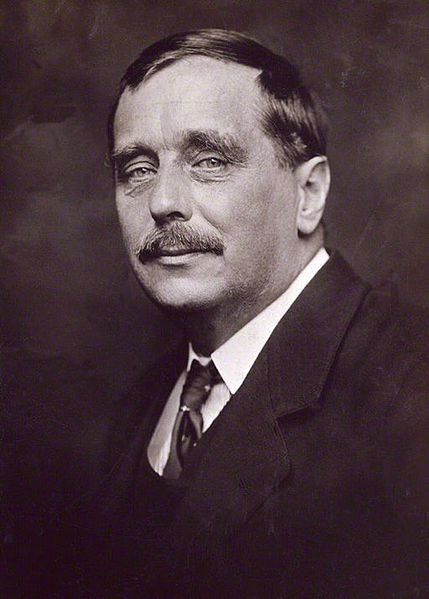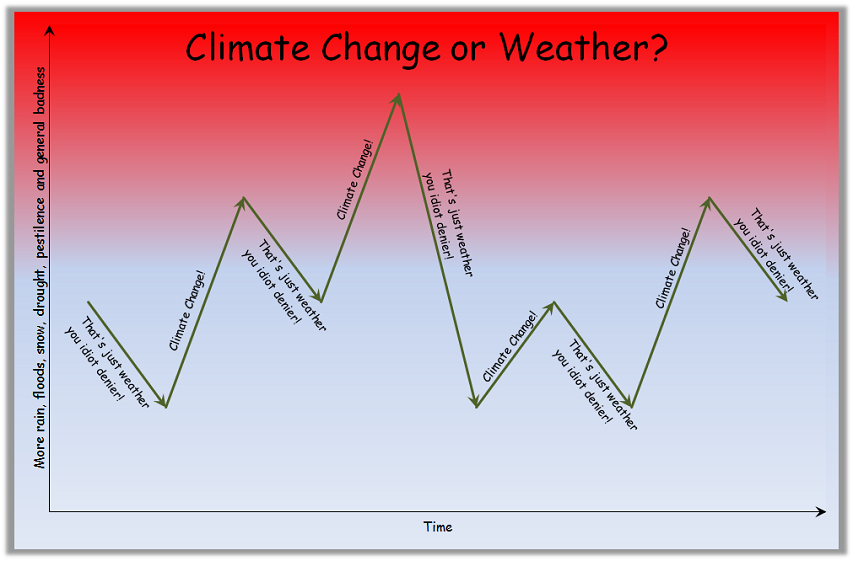Social Darwinism fails both on its own terms, and in the implementation. On its own terms, because we simply can’t account for all the variables. I use the example of billiards: The math is simple enough behind any given billiard shot, but once you introduce obvious real world variables like imperceptible imperfections in the felt of the table, the balls themselves, the cue … plus the inability of human muscles to consistently apply the necessary force in just the right way … your average PhD physicist should be a much better pool player than, say, your average barfly, but the reality is far different. How much more complex is an entire living system, than a pool table?
Social Darwinism fails in practice for the most obvious reason: You can’t practice it with the necessary consistency without massive State intervention, and what kind of fool would give a State, any State, that power? It has been tried, 1933-45 being the most prominent example, and it didn’t go well.
Severian, “The Experiment”, Founding Questions, 2021-09-25.
February 13, 2025
QotD: Social Darwinism
October 17, 2024
Historian Answers Google’s Most Popular Questions About Ancient Sparta
History Hit
Published Jun 26, 2024Were the Spartans actually the best warriors? Did they really throw their babies off cliffs? Did they … HUNT their slaves? Ancient Greek historian Roel Konijnendijk answers your most googled questions about the Spartans.
00:00 Intro
00:35 When did the Spartans live?
01:00 Were the Spartans Greek?
01:30 Were the Spartans a professional army?
03:00 Were the Spartans the best warriors?
04:46 How did the Spartans train?
06:43 Did the Spartans throw babies off cliffs?
07:42 Did the Spartans practise eugenics?
09:55 Did the Spartans steal food?
10:21 Were the Spartans vegetarian?
11:18 Were the Spartans better than Athens?
12:54 Did Sparta have a navy?
13:15 Why didn’t Sparta have walls?
14:22 Did the Spartans hunt their slaves?
15:30 Did the Spartans get their slaves drunk?
16:42 Did the Spartans have a king?
17:57 Was Sparta a democracy?
19:13 Why did the Spartans fight at Thermopylae?
19:45 Why did the Spartans only send 300?
21:30 Were the Spartans betrayed at Thermopylae?
22:42 Did the Spartans beat the Persians?
24:00 Were the Spartans muscular?
25:40 Did the Spartans have long hair?
26:25 Did the Spartans have same sex relationships?
28:27 Were the Spartan women equal?
(more…)
July 31, 2023
2023 compared with the world of C.M. Kornbluth’s “Marching Morons”
John C. Wright on what he calls our “incompetocracy”:
The conceit of the C.M. Kornbluth story “The Marching Morons” (Galaxy, April 1951) is that low-IQ people, having less practical ability to plan for the future, will reproduce more recklessly hence in greater numbers than high-IQ people, leading to a catastrophic general decline in intelligence over the generations.
A small group of elite thinkers tries, by any means necessary, to maintain a crumbling world civilization being overrun by an ever increasing underclass of morons.
In this morbid and unhappy little short story, the solution to overpopulation was the Final Solution, that is, mass murder of undesirables followed by the murder of the architect of the solution.
The eugenic genocide is played for laughs, as the morons are herded aboard death-ships, told they are going on vacation to Venus. The government forges postcards to their widows and orphans to maintain the fraud, which the morons are too stupid to penetrate.
You may recognize a similar conceit from the film Idiocracy (2006), written and directed by Mike Judge. Unlike the short story, no solution is proposed for the overpopulation of undesirables.
No one seems to note the absurd self-flattery involved in entertaining Malthusian eugenicist fears: no one regards himself as a moron unworthy of reproduction. Margaret Sanger did not volunteer to sterilize herself on the grounds that she was a moral cripple suffering from Progressive mental illness, hence unfit.
It is only the working man, the factory hand, the field hand, who is unfit, and usually he is an immigrant from some Catholic hence illiterate nation, with a fertile wife and a happy home.
The happy Catholic with his ten children will not die alone, empty and unloved, in some sterile euthanasia center in Canada, like the Progressive will, and so the Progressive hates the happy father like Gollum hates the sun.
The self-flattery is absurd because, first, IQ is not genetic — if it were, average IQ scores for a given bloodline would not change over two generations. Darwinism allows for genetic changes only over geologic eras.
Second, education in the modern day is inversely proportional to intelligence. No intelligent man would or does subject himself to the insolent falsehoods of college indoctrination: we are too independent in thought to be allowed to pass.
Third, a truly intelligent man, if he thought his bloodline was in danger of being outnumbered and swamped, rather than trying to inflict infertility on the competition, would seek the only intelligent solution compatible with honesty and decency: lifelong monogamy in a culture that forbids contraception and encourages maternity. He would, indeed, become Catholic, and attempt to evangelize his neighbors likewise.
A truly intelligent man would accept rather than reject the divine injunction to be fruitful and multiply. The idea of overpopulation is and always was a Progressive scare tactic, meant to undermine and control the underclass. It is the tactic of making the poor feel poorly for trying to use resources and grow rich. It is the politics of enforced poverty.
Why else would billionaires on private jets fly to Davos to eat steak dinners over wine, in order to pressure peons to ride bikes and eat bugs?
Our salvation is that they cannot even do that right. These James Bond style villains who are committing slow genocides with experimental injections, with wars against farming, against guns, against police, against oil drilling, against nuclear energy, and against family life, have not sacrificed the billions their dark and ancient gods crave dead, but this is due only to their lack of skill and organization.
September 27, 2022
QotD: The Poor Law Reform Act of 1834
The Royal Commission on the Operation of the Poor Laws, set up in 1832, was chaired by Charles Blomfield, Bishop of London. It numbered several other prominent churchmen among its members. The deliberations of this body led to the Poor Law Reform Act of 1834. This charming statute was based on the idea that the provision of poor relief must be made so torturous and degrading that only those suffering from extreme starvation and indigence would accept it. The sole form of assistance was to be within the context of workhouses, which were to be made as miserable and hellish as any prison. Any family unfortunate enough to have no choice but to fall back on the workhouse would be split up, as mixed-sex institutions would “undermine the good administration” of the workhouses, as the authorities euphemistically put it.
One of the law’s architects, Edwin Chadwick — a man who made Mr Gradgrind [Wiki] look like one of the Cheeryble brothers [Wiki] — infamously commented that it was vital that the inmates of workhouses should be given the coarsest food possible. William Cobbett, a leading opponent of the bill, gleefully seized on this, nicknaming the Whigs, who pushed the legislation hardest, the “Coarser Food Party”. The idea of all this — rooted in the principles of utilitarianism, political economy and Malthusianism — was, as future Archbishop of Canterbury John Bird Sumner put it, to encourage the labouring poor to do everything they could to avoid the “intemperance and want of prudent foresight” that creates poverty, the “punishment which the moral government of God inflicts in this world upon thoughtlessness and guilty extravagance”.
In the 1830s, these ideas were at the very vanguard of progressive thinking. They were promoted by the metropolitan liberal elite of the age, men such as James Mill, Jeremy Bentham and David Ricardo, the forward-thinking “Philosophic Radicals” who spewed out reforming and “improving” ideas through their famous organ The Westminster Review. Other contributors included happy-go-lucky eugenicist pioneer and social Darwinist Herbert Spencer, as well as Harriet Martineau, the sort of woman who would cheerfully have put her “enlightened benevolence” into practice by personally taste-testing workhouse food to ensure it was sufficiently coarse.
These ideas were gleefully leapt upon by a large swathe of the Church leadership, who endorsed the grim dogmas of political economy with an alacrity that would only surprise anyone unfamiliar with the long history of our episcopacy’s lamb-like submission to secular liberal orthodoxies. As E.R. Norman pointed out many decades ago, the Church of England’s leaders have, again and again since at least the eighteenth century, “readily adopted the progressive idealism common to liberal opinion within the intelligentsia, of which they were a part”. They have “always managed to reinterpret their sources in ways which have somehow made their version of Christianity correspond to the values of their class and generation”, a process intimately connected to the fact that bishops are nearly always tied (by personal links, economic interests and a desire to conform) to their secular peers who set the broader cultural and political agenda.
Capel Lofft, “The closing of the Episcopal mind”, The Critic, 2022-06-21.
May 20, 2021
The Birth Control Movement and Eugenics – A Curious Link | B2W: ZEITGEIST! I E.18 – Winter 1923
TimeGhost History
Published 19 May 2021In the winter of 1923, a controversial activist takes a Catholic doctor to trial for libel. The proceedings capture a much bigger moment in the history of the interwar period: the controversial — but inherent — link between birth control and eugenics.
(more…)
February 25, 2021
Malthusian cheerleaders
Barry Brownstein looks at some of the claims from Malthus onward about the imminent demise of humanity due to overpopulation and how that same concern keeps popping up again and again:
… James Lovelock advanced the Gaia hypothesis that Earth is one “self-regulating organism.” Lovelock forecasts the population of the Earth will fall to one billion from its current total of over seven billion people. Given Lovelock’s cheerfulness about such carnage, it is easy to see why Alan Hall, a senior analyst at The Socionomist, wonders whether “today’s drives to limit consumption and population” are ideologically related to the eugenics movement from the past century. In his essay “A Socionomic Study of Eugenics,” Hall writes in The Socionomist:
Circa 1900, influential intellectuals in Europe and the U.S. voiced concerns about uncontrolled procreation causing a supposed decline in the quality of human beings. Today, similar groups voice concerns about uncontrolled population growth and resource consumption causing a decline in the quality of the environment … Today’s green advocates brandish images of an overrun, dying planet.
Today, the Bill and Melinda Gates Foundation is working to aid the lives of children living “in extreme poverty.” In his book, Factfulness, the late professor of international health Hans Rosling, reports on critics of the Gates Foundation who reject such efforts. “The argument goes like this,” Rosling writes. “If you keep saving poor children, you’ll kill the planet by causing overpopulation.”
In the face of advocates for such beliefs, no wonder Hall asks us to reflect on whether we “will make the cut” if those seeking to cull humanity are successful.
Malthusian Doom
We’ve all heard the SparkNotes version of Malthusian predictions of doom caused by overpopulation. Malthus thought food production could not keep pace with population growth. In his 1798 “Essay on the Principle of Population,” Malthus anticipated the suffering that awaited humanity.
The power of population is so superior to the power in the earth to produce subsistence for man, that premature death must in some shape or other visit the human race. The vices of mankind are active and able ministers of depopulation. They are the precursors in the great army of destruction; and often finish the dreadful work themselves. But should they fail in this war of extermination, sickly seasons, epidemics, pestilence, and plague, advance in terrific array, and sweep off their thousands and ten thousands. Should success be still incomplete, gigantic inevitable famine stalks in the rear, and with one mighty blow levels the population with the food of the world.
Unlike Ehrlich and others, Malthus had reason to be a pessimist in his lifetime. If Malthus had been writing history or predicting the near future, he would not have been far from the mark.
Many of the predictions of overpopulation were based on estimates of population growth (especially in sub-Saharan Africa) which were far from accurate, and in every case we know of, increased economic well-being directly impacts population growth so as a country begins to get richer its population growth begins to slow down significantly (most first-world nations are already at or below population-replacement birthrates).
In their book, Empty Planet: The Shock of Global Population Decline, Darrell Bricker and John Ibbitson have startling facts for those who believe the population will continue to explode.
No, we are not going to keep adding bodies until the world is groaning at the weight of eleven billion of us and more; nine billion is probably closer to the truth, before the population starts to decline. No, fertility rates are not astronomically high in developing countries; many of them are at or below replacement rate. No, Africa is not a chronically impoverished continent doomed to forever grow its population while lacking the resources to sustain it; the continent is dynamic, its economies are in flux, and birth rates are falling rapidly. No, African Americans and Latino Americans are not overwhelming white America with their higher fertility rates. The fertility rates of all three groups have essentially converged.
Looking at current trends and expecting them to continue is what Hans Rosling calls “the straight line instinct.” That instinct often leads to false conclusions.
January 6, 2021
July 8, 2020
July 6, 2020
Cold War Two is upon us, but it’s not all Trump’s fault (believe it or not)
Niall Ferguson on the rapid drop in temperature in US/Chinese relations in the last eight years:

President Donald Trump and PRC President Xi Jinping at the G20 Japan Summit in Osaka, 29 June, 2019.
Cropped from an official White House photo by Shealah Craighead via Wikimedia Commons.
“We are in the foothills of a Cold War.” Those were the words of Henry Kissinger when I interviewed him at the Bloomberg New Economy Forum in Beijing last November.
The observation in itself was not wholly startling. It had seemed obvious to me since early last year that a new Cold War — between the U.S. and China — had begun. This insight wasn’t just based on interviews with elder statesmen. Counterintuitive as it may seem, I had picked up the idea from binge-reading Chinese science fiction.
First, the history. What had started out in early 2018 as a trade war over tariffs and intellectual property theft had by the end of the year metamorphosed into a technology war over the global dominance of the Chinese company Huawei Technologies Co. in 5G network telecommunications; an ideological confrontation in response to Beijing’s treatment of the Uighur minority in China’s Xinjiang region and the pro-democracy protesters in Hong Kong; and an escalation of old frictions over Taiwan and the South China Sea.
Nevertheless, for Kissinger, of all people, to acknowledge that we were in the opening phase of Cold War II was remarkable.
Since his first secret visit to Beijing in 1971, Kissinger has been the master-builder of that policy of U.S.-Chinese engagement which, for 45 years, was a leitmotif of U.S. foreign policy. It fundamentally altered the balance of power at the mid-point of the Cold War, to the disadvantage of the Soviet Union. It created the geopolitical conditions for China’s industrial revolution, the biggest and fastest in history. And it led, after China’s accession to the World Trade Organization, to that extraordinary financial symbiosis which Moritz Schularick and I christened “Chimerica” in 2007.
How did relations between Beijing and Washington sour so quickly that even Kissinger now speaks of Cold War?
The conventional answer to that question is that President Donald Trump has swung like a wrecking ball into the “liberal international order” and that Cold War II is only one of the adverse consequences of his “America First” strategy.
Yet that view attaches too much importance to the change in U.S. foreign policy since 2016, and not enough to the change in Chinese foreign policy that came four years earlier, when Xi Jinping became general secretary of the Chinese Communist Party. Future historians will discern that the decline and fall of Chimerica began in the wake of the global financial crisis, as a new Chinese leader drew the conclusion that there was no longer any need to hide the light of China’s ambition under the bushel that Deng Xiaoping had famously recommended.
July 5, 2020
Andrew Sullivan – “There is no doubt at this point that communist China is a genocidal state”
In his latest column, Andrew Sullivan discusses China’s latest outrages against groups within China:

Protest against the Chinese government in Hong Kong, 25 November 2019.
Photo by Studio Incendo via Wikimedia Commons
Genocide is not measured simply by the number of human beings in a demographic group who have been killed. Such numbers vary. The pogroms in Europe of the 14th century killed far, far fewer Jews than died in the 20th-century Holocaust, but it would be crazy not to see a very similar eliminationist impulse. It’s the genocidal intent that defines a genocide. The United States Holocaust Memorial Museum defines it as “the intent to destroy, in whole or in part, a national, ethnic, racial, or religious group.” Their definition includes the following five categories:
- Killing members of the group.
- Causing serious bodily or mental harm to members of the group.
- Deliberately inflicting on the group conditions of life calculated to bring about its physical destruction in whole or in part.
- Imposing measures intended to prevent births within the group.
- Forcibly transferring children of the group to another group.
There is no doubt at this point that communist China is a genocidal state. The regime is determined to coerce, kill, reeducate, and segregate its Uighur Muslim population, and to pursue eugenicist policies to winnow their ability to sustain themselves. The Associated Press just published an exhaustive and chilling account of the extent of the campaign, which was reportedly supported and seconded by the president of the United States when speaking with President-for-life Xi.
We already know about the reeducation camps. We found out this week the grisly detail that China may even have been exporting human-hair products taken from Uighur political prisoners in those camps. What the AP helps us better understand is how the regime is forcibly sterilizing Uighur women inside and outside the camps, attempting to control the Uighur population by assaulting basic reproductive freedom. Uighur families with multiple children are now in danger of being sent to camps for the crime of bringing Uighur kids into the world: “Time in a camp — what the government calls ‘education and training’ — for parents with too many children is written policy in at least three counties, notices found by [scholar Adrian] Zenz confirmed. In 2017, the Xinjiang government also tripled the already hefty fines for violating family planning laws for even the poorest residents — to at least three times the annual disposable income of the county.”
And the campaign of terror is working: “Birth rates in the mostly Uighur regions of Hotan and Kashgar plunged by more than 60% from 2015 to 2018, the latest year available in government statistics. Across the Xinjiang region, birth rates continue to plummet, falling nearly 24% last year alone — compared to just 4.2% nationwide, statistics show.” In the Uighur city of Hotan, over a third of all married women of childbearing age were sterilized in 2019 alone. And this is taking place in the context of a new campaign to increase the fertility and offspring of the majority Han Chinese. This is pure racial social engineering.
This genocidal dictatorship also took this past week to stomp all over what’s left of freedom in Hong Kong. Just before the anniversary of the end of British rule in Hong Kong, Beijing has introduced a new security law that all but eviscerates any freedom for dissent in the former British colony. It renders a variety of offenses that involve pro-democracy activism and criticism of the regime punishable by up to a lifetime in jail. The law is deliberately vague, was passed with no input from Hong Kong’s own government before its details were revealed, and criminalizes offenses such as “secession, subversion against the central Chinese government, terrorism, and colluding with foreign forces.”
The effect has been immediate: Key members of a leading dissident group, Demosisto, resigned, and the party has been disbanded. Throughout Hong Kong, businesses that had posted messages of support for the pro-democracy forces are swiftly removing them. People are deleting their social-media accounts for fear of imprisonment. A BBC reporter notes the immediate impact: “One contact of mine, a lawyer and human-rights activist, sent me a message shortly after the law was passed. ‘Please delete everything on this chat,’ he wrote.”
November 24, 2019
Next stage in religious observance for those participating in the “Great Environmental Awakening”
Mark Steyn discusses the obvious next step for those newly converted to the Environmentalist religion:
To quote a line from America Alone: “The future belongs to those who show up.” And, while eugenics is universally condemned as morally repugnant, self-eugenics is an idea we can all get behind. Step forward the “Indefinitely Wild” columnist of Outside magazine, Wes Siler:
I Got a Vasectomy Because of Climate Change
Getting one was, by far, the most powerful personal action I could take for our planetMr Siler claims to be 38 years old, notwithstanding the prose style of an overwrought pre-pubescent. And he cannot stand idly by procreating while the planet burns. Greater love hath no man than to lay down his sperm for the remnants of Malibu […]
In fact, “the absolute biggest difference” you could make would be to kill yourself right now — rather than merely tossing your unborn children into the infernos of California. Alas, the self-extinction movement has not yet reached that stage of despair, although we should certainly encourage them to follow the necessary logic of their epocalyptic torments. For the moment (and, again, as I wrote in America Alone) contemporary progressivism has “adopted a twenty-first-century variation on the strategy of the Shakers, who were forbidden from reproducing and thus could increase their numbers only by conversion”.
As you might have noticed, there aren’t a lot of Shakers around today. Will there be a lot of anguished environmentalists around once every Wes Siler reader has had his scrotum anesthetized?
No. But at least they’ll have saved the planet, right?
Doubtful. Mr Siler notes that every little baby Siler comes with a price tag of 58 tons of carbon emissions per year. But that’s because he’s American. Mr and Mrs Siler could move to Somalia and have thirty kids for the carbon footprint of one Yank moppet. So why are the same people who lecture us that we only have twelve years to save the planet in favor of every Somali moving to Maine or Minnesota and acquiring a western-sized carbon payload?
November 1, 2019
Why All Germans Were Nazis – How Hitler Created the Third Reich | BETWEEN 2 WARS I 1934 Part 1 of 4
TimeGhost History
Published 31 Oct 2019After Hitler seized power in Germany in January 1933, he rapidly transformed the Democratic Weimar Republic into a repressive, totalitarian and racist state. In 1934, Germany became Nazi Germany.
Join us on Patreon: https://www.patreon.com/TimeGhostHistory
Subscribe to our World War Two series: https://www.youtube.com/c/worldwartwo…
Hosted by: Indy Neidell
Written by: Spartacus Olsson and Francis van Berkel
Directed by: Spartacus Olsson and Astrid Deinhard
Executive Producers: Bodo Rittenauer, Astrid Deinhard, Indy Neidell, Spartacus Olsson
Creative Producer: Joram Appel
Post-Production Director: Wieke Kapteijns
Research by: Francis van Berkel and Spartacus Olsson
Edited by: Wieke Kapteijns
Sound design: Marek KamińskiImage sources: Bundesarchiv, Bundesarchiv, Bild 102-15282A / Georg Pahl, Heinz Bergschicker Deutsche Chronik 1933-1945 – Ein Zeitbild der faschistischen Diktatur
Icons from the Noun Project: Police by IconTrack, soldier by Simon Child, police man by Gregor Cresnar, hello by Universal Icons.
A TimeGhost chronological documentary produced by OnLion Entertainment GmbH.
From the comments:
Spartacus Olsson
2 hours ago
Now, this episode explains the measures that the Nazis used to gain control over the German people. It is not an attempt to justify, or be apologetic of the responsibility for the horrors committed during the Nazi regime. But it is also not a blanket condemnation of Germans. What happened in Germany starting in 1933 should serve us all as a warning to what can happen when you let loose authoritarian power, normalize lies as an acceptable part of political discourse, and make mainstream the disregard of basic human values. We should all think of that although the Nazis were especially efficient in their implementation of an authoritarian system, they are by far not the only ones that have succeeded in seducing whole a nation into blind hatred and acceptance of the suffering and death of others to forward an ideology. We should remember that freedom and democracy is essential, but also that words matters. The beginning of oppression starts with an endless stream of lies that confuse public discourse to the point that facts don’t matter anymore and truth becomes fiction. This video shows us what can happen next. Our mantra as a channel is to focus on the facts, not our opinions, not our ‘truth’ — just the facts m’am — and that is what we have presented here, for better or worse.
July 11, 2019
The genesis of the administrative state during the Great Depression
Leonid Sirota provides some interesting background on the rise of the administrative state during the 1930s:

Top left: The Tennessee Valley Authority, part of the New Deal, being signed into law in 1933.
Top right: FDR (President Franklin Delano Roosevelt) was responsible for the New Deal.
Bottom: A public mural from one of the artists employed by the New Deal’s WPA program.
Wikimedia Commons.
To a degree that is, I think, unusual among other areas of the law, administrative law in the United States and, to a lesser extent, in Canada is riven by a conflict about its underlying institution. To be sure there, there are some constitutional lawyers who speak of getting rid of judicial review of legislation and so transferring the constitution to the realm of politics, rather than law, but that’s very much a minority view. Labour unions have their critics, but not so much among labour lawyers. But the administrative state is under attack from within the field of administrative law. It has, of course, its resolute defenders too, some of them going so far as to argue that the administrative state has somehow become a constitutional requirement.
In an interesting article on “The Depravity of the 1930s and the Modern Administrative State” [PDF] recently published in the Notre Dame Law Review, Steven G. Calabresi and Gary Lawson challenge the defenders of the administrative state by pointing out its intellectual origins in what they persuasively argue was
a time, worldwide and in the United States, of truly awful ideas about government, about humanity, and about the fundamental unit of moral worth—ideas which, even in relatively benign forms, have institutional consequences that … should be fiercely resisted.
That time was the 1930s.
Professors Calabresi and Lawson point out that the creation of the administrative state was spearheaded by thinkers ― first the original “progressives” and then New Dealers ― who “fundamentally did not believe that all men are created equal and should democratically govern themselves through representative institutions”. At an extreme, this rejection of the belief in equality led them to embrace eugenics, whose popularity in the United States peaked in the 1930s. But the faith in expertise and “the modern descendants of Platonic philosopher kings, distinguished by their academic pedigrees rather than the metals in their souls” is a less radical manifestation of the same tendency.
The experts, real or supposed ― some of whom “might well be bona fide experts [while] [o]thers might be partisan hacks, incompetent, entirely lacking in judgment beyond their narrow sphere of learning, or some combination thereof” ― would not “serve as wise counselors to autonomous individuals and elected representatives [but] as guardians for servile wards”. According to the “advanced” thinkers of the 1930s, “[o]rdinary people simply could not handle the complexities of modern life, so they needed to be managed by their betters. All for the greater good, of course.” Individual agency was, in any case, discounted: “the basic unit of value was a collective: the nation, the race, or the tribe. Individuals were simply cells in an organic whole rather than ends in themselves.”
H/T to Colby Cosh for the link.
June 30, 2018
Wealthy virtue-signalling hurts the poor
At Catellaxy Files, Rafe Champion discusses some of the points raised by Matt Ridley in his recent book:
Essentially, the poor pay for the virtue-signalling of the rich. Dr Matt Ridley opens chapter 14 of Climate Science: The Facts with some blunt claims.
Here is a simple fact about the world today. Climate change is doing more good than harm. Here is another fact. Climate change policy is doing more harm than good.
On top of that he points out that the poor are carrying the cost of today’s climate policy. That is something for the ALP [Australian Labour Party] and the social justice warriors to think about.
This should remind people of another great postwar example of destructive virtue-signalling – massive foreign aid to the developing nations aka the Third World. That did more harm than good for the people of the Third World, apart from the crony criminals in power. The great Lord Peter Bauer was onto that very smartly, starting in the 1940s and his findings have been consolidated lately, notably by William Easterly [in] The White Man’s Burden: Why the west’s efforts to aid the rest have done so much ill and so little good. There are exceptions to the rule such as hands-on medical care and private education.
Ridley mentions in passing some of the cases where apparently smart people have made very bad calls, starting with a prominent and wealthy leftwinger who he debated on TV. Faced with the charge that climate policy was hurting the poor he replied “But what about my grandchildren?”. As though the future wellbeing of the presumably affluent and privileged grandchildren of the talking head might be threatened by policies that help the poor who are with us at present. Ridley also cited a son of Charles Darwin who thought that eugenic breeding programs were essential to save civilization and Paul Ehrlich who in 1972 predicted that millions would die due to over-population (prompting the one-child policy in China).










